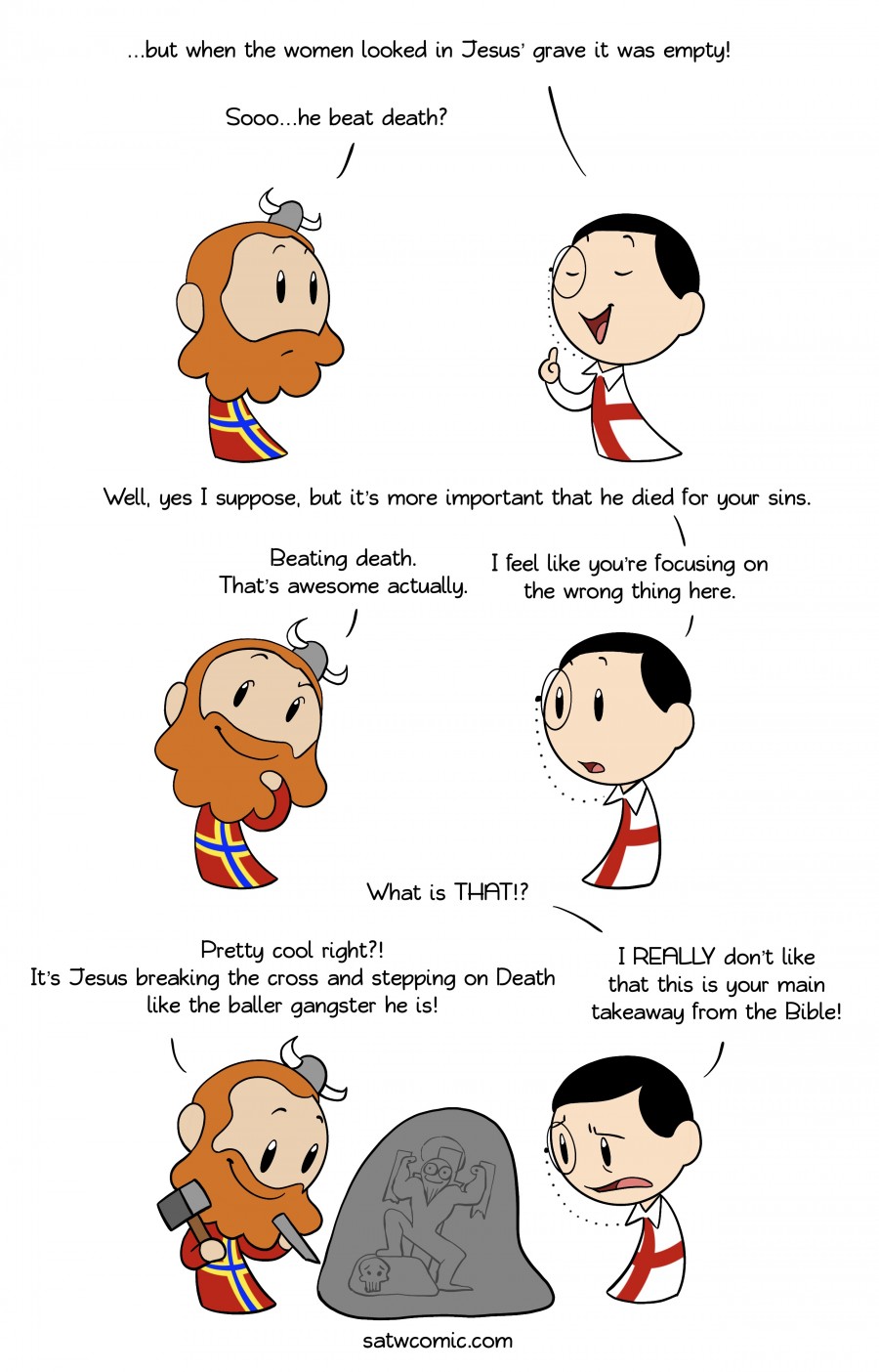
Death of the author
We can’t know for sure what the Vikings thought of Jesus but he tends to look more defiant and strong-willed than suffering on the cross in their few depictions of him, suggesting they were more impressed by his ability to overcome death than anything else he did.
England Scandinavia
4th February 2022
4 years ago #9868801
5
0
I like Grandpa North's view on things. It does match how Jesus were depicted by the Vikings, who preferred strong gods to worship. (Strength being relative and counted in many different ways).
4 years ago #9873234
3
0
Vikings: Wow, so your god beats death... he must be one hell of a warrior, tell me, is he in Valhalla or?
4 years ago #9868804
3
2
If Jesus as described ever existed then he certainly didn't die for anyone's sins looking at the Christian mythology. At lest there is no support for this in the bible directly attributed to Jesus. He asked god (himself) to forgive the Romans for executing him but that is about it.
4 years ago #9868905
2
0
The Vikings combined Jesus and their own gods; just look at Grandpa Norths little cute stone!
(Killergods)
(Killergods)
2 years ago #9881055
1
0
Jesus and Baldur chillin' in the beat death club after Ragnarok and revilations
Add comment: Please Sign in or create an accout to comment.



 Support the comic on
Support the comic on 




















39